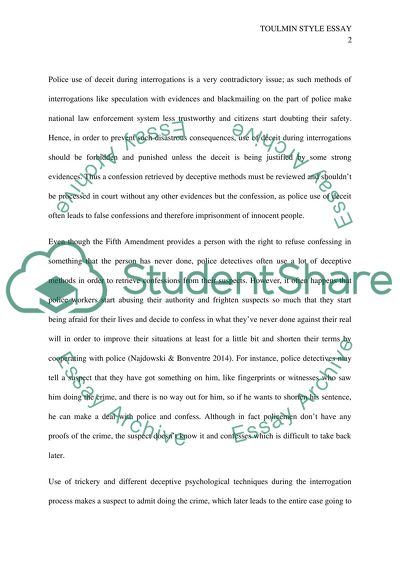Cite this document
(“Toulmin Style: Police Use of Deceit during Interrogations Research Paper”, n.d.)
Toulmin Style: Police Use of Deceit during Interrogations Research Paper. Retrieved from https://studentshare.org/politics/1696398-toulmin-style-essay
Toulmin Style: Police Use of Deceit during Interrogations Research Paper. Retrieved from https://studentshare.org/politics/1696398-toulmin-style-essay
(Toulmin Style: Police Use of Deceit During Interrogations Research Paper)
Toulmin Style: Police Use of Deceit During Interrogations Research Paper. https://studentshare.org/politics/1696398-toulmin-style-essay.
Toulmin Style: Police Use of Deceit During Interrogations Research Paper. https://studentshare.org/politics/1696398-toulmin-style-essay.
“Toulmin Style: Police Use of Deceit During Interrogations Research Paper”, n.d. https://studentshare.org/politics/1696398-toulmin-style-essay.


